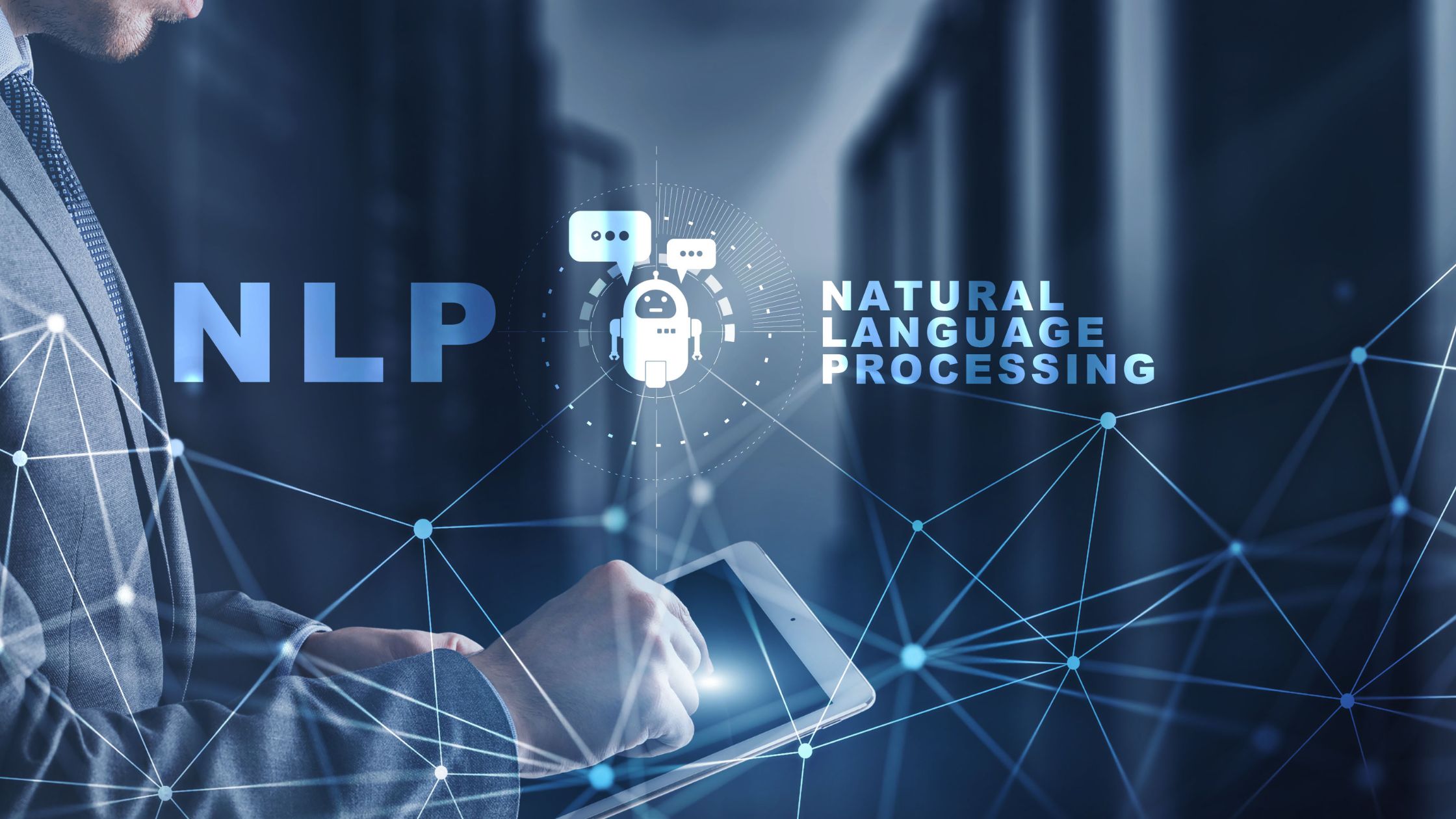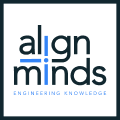MODIFIED ON: August 16, 2023 / ALIGNMINDS TECHNOLOGIES / 0 COMMENTS

Introduction
Artificial Intelligence (AI) has made noteworthy strides in recent years, revolutionizing various industries. One of the most exciting areas where AI has made a tremendous impact is Natural Language Processing (NLP). NLP enables machines to understand, interpret, and respond to human language in a way that mimics human communication.
In this article, we will explore the role of GPT-3, a powerful language model developed by OpenAI, in software development.
Understanding GPT-3 and Natural Language Processing
GPT -3 short for “Generative Pre- trained Transformer 3,” is a state-of-the-art language model created by OpenAI. It is based on a deep learning architecture known as the Transformer, which allows it to process and generate natural language. GPT-3 is trained on a massive amount of data, allowing it to predict and generate text that is remarkably human-like.
Similarly, Natural Language Processing, includes the interaction between computers and human language. NLP algorithms analyze and interpret text and speech, making it possible for machines to understand the meaning, context, and sentiment behind human communication.
Let’s Look at AI’s Impact on Software Development

AI, especially NLP-powered technologies like GPT-3, has had a profound impact on software development. Traditionally, software development requires developers to write thousands of lines of code to achieve specific functionalities. However, with the advent of AI, the process has become more streamlined and efficient.
GPT-3 Applications in Software Development
GPT -3’s ability to process and generate human-like text has opened up new possibilities in software development. It can understand and interpret code snippets, making it a powerful tool for developers. With GPT-3, developers can efficiently generate code for various tasks, reducing the time and effort required for manual coding. From building simple functions to complex algorithms, GPT-3’s applications in software development are diverse and transformative.
GPT-3 Code Generation for Developers

GPT-3’s code generation capabilities have sparked a paradigm shift in how developers approach their tasks. By leveraging the vast corpus of pre-trained data, GPT-3 can provide developers with relevant code examples tailored to their specific needs. This not only saves time but also fosters creativity and innovation. Whether it’s web development, data analysis, or machine learning, GPT-3’s code generation is reshaping the way developers bring their ideas to life.
Use Cases of GPT-3 in Software Development
1. Automated Code Generation: GPT-3 can generate code based on written descriptions or pseudocode. This accelerates the development process and reduces human error.
2. Natural Language Interfaces: Developers can create software with user-friendly interfaces that understand natural language inputs, improving user experience.
3. Automated Testing: GPT-3 can help in testing software by generating test cases and predicting potential issues.
4. Debugging Assistance: GPT-3 can assist developers in debugging complex code by understanding error descriptions and providing relevant solutions.
Advantages of Using GPT-3 in Development
1. Time Savings: GPT-3 accelerates software development by automating various tasks, reducing the time required to create new applications.
2. Improved Accuracy: The model’s language capabilities ensure accurate code generation and a better understanding of user inputs.
3. Accessibility: Developers with limited coding knowledge can leverage GPT-3 to create functional software applications.
Limitations and Challenges
While GPT-3 offers numerous advantages, it also faces some limitations and challenges:
1. Data Dependency: GPT-3’s performance heavily relies on the quality and quantity of training data.
2. Bias and Ethics: The model may produce biased outputs, necessitating careful monitoring and ethical considerations.
3. Cost: Implementing GPT-3 in software development can be expensive due to its computational requirements.
4. Ethical Considerations: As AI and NLP technologies like GPT-3 continue to evolve, ethical considerations become paramount. Ensuring the responsible use of AI is essential to prevent unintended consequences and biases.
Future of GPT-3 and NLP in Software Development:

The future of GPT-3 and NLP in software development is promising. As these technologies advance, we can expect even more sophisticated applications and improved integration with existing development processes.
How GPT-3 is Transforming Software Development?
GPT-3’s impact on software development cannot be overstated! Its ability to comprehend the context and generate human-readable code has revolutionized the way developers work. Instead of spending hours writing code from scratch, developers can now rely on GPT-3 to suggest code snippets or even entire functions. This has significantly accelerated the development process, enabling faster prototyping and iterative improvements. As more developers embrace GPT-3, software development is becoming more efficient and productive.
What’s at stake for the Software Development companies?
Although GPT-3 and Natural Language Processing have revolutionized software development, it is crucial to address the limitations and ethical considerations associated with AI’s increasing role in software development. This is where software development companies can play a major role!
Appointing a software development company in the US or any other part of the world is extremely necessary! These companies can harness GPT-3 and other cutting-edge technologies to deliver exceptional software solutions. Software developers are known for their expertise, agility, and cost-effectiveness. Moreover, with an AI-driven approach, they can further streamline development processes and offer efficiency.
Alignminds AI-Driven Approach in Software Development:
Alignminds is a software development company in India, well established in Kenya, the US, and several other regions across the globe.
They incorporate an AI-driven approach to provide innovative solutions for their clients. An AI-driven approach means that they leverage artificial intelligence and machine learning technologies to enhance the software development process and deliver intelligent, data-driven solutions.
Here are some key aspects of Alignminds’ AI-driven software development approach:
AI Integration: Alignminds, as a software development company in Kenya, integrates AI and machine learning capabilities into the software they develop. This integration allows the software to learn from user interactions and data, adapt to changing conditions, and make intelligent decisions.
AI-powered Analytics: Alignminds uses AI algorithms to analyze large volumes of data efficiently. By leveraging AI-powered analytics, they can gain valuable insights from the data collected by the software, enabling clients to make data-driven decisions and improve their business processes.
Natural Language Processing (NLP): Alignminds may incorporate NLP technologies into their solutions, allowing the software to understand and process human language. This can enable features such as chatbots, voice assistants, sentiment analysis, and more.
Predictive Capabilities: By utilizing machine learning models, Alignminds’ solutions can make predictions based on historical data and patterns. These predictive capabilities can be applied to various domains, such as sales forecasting, demand prediction, or predictive maintenance.
Automated Processes: Alignminds may leverage AI automation to streamline repetitive tasks and processes within the software. This can improve efficiency, reduce human errors, and free up resources for more strategic tasks.
Personalization: Through AI-driven recommendations and personalization algorithms, Alignminds can tailor the software experience to each user’s preferences and behaviors, enhancing user satisfaction and engagement.
Data Security and Privacy: As a software development company in the US, Alignminds ensures that data privacy and security are prioritized in their AI-driven solutions. They implement robust security measures to protect sensitive data and comply with relevant data protection regulations.
FAQs
Is GPT-3 suitable for all types of software development projects? GPT-3 is beneficial for various software development projects, but its suitability depends on the specific requirements of each project. Some applications may benefit more from their language capabilities than others.
Can GPT-3 replace human software developers entirely?
While GPT-3 streamlines certain tasks, it cannot replace human developers entirely. Human expertise is still essential for complex decision-making and problem-solving.
GPT-3 understand all programming languages?
GPT-3 is not limited to specific programming languages. It can understand and generate code in various programming languages, making it versatile for developers.
How can developers address bias in GPT-3’s outputs?
Developers can mitigate bias by carefully curating training data, actively monitoring the model’s responses, and implementing ethical guidelines during application development.
What challenges might arise when integrating GPT-3 with existing software development workflows?
Integrating GPT-3 may require adjustments to existing workflows and additional computational resources, leading to cost and compatibility challenges. However, the benefits often outweigh these challenges.
Leave a reply
Your email address will not be published.
-
Recent Posts
- The Role of AI in Business Growth: Top Trends for 2025 and Beyond
- The Evolution of Voice Search in AI: What’s Next for 2025?
- How to Hire an AI Developer: A Complete Guide 2025
- Top 10 Android App Development Trends in 2025
- Top Trends in Product Modernization for 2025 and Beyond
-
Categories
- MVP Development (5)
- AlignMinds (56)
- Operating Systems (1)
- Android POS (3)
- Application Hosting (1)
- Artificial Intelligence (49)
- Big Data (2)
- Blockchain (1)
- Cloud Application Development (8)
- Software Development (39)
- Software Testing (9)
- Strategy & User Experience Design (4)
- Web Application Development (28)
- Cyber Security (6)
- Outsourcing (7)
- Programming Languages (3)
- DevOps (5)
- Software Designing (6)
- How to Code (4)
- Internet of Things (1)
- Machine Learning (2)
- Mobile App Marketing (5)
- Mobile Application Development (25)
- Mobile Applications (11)







